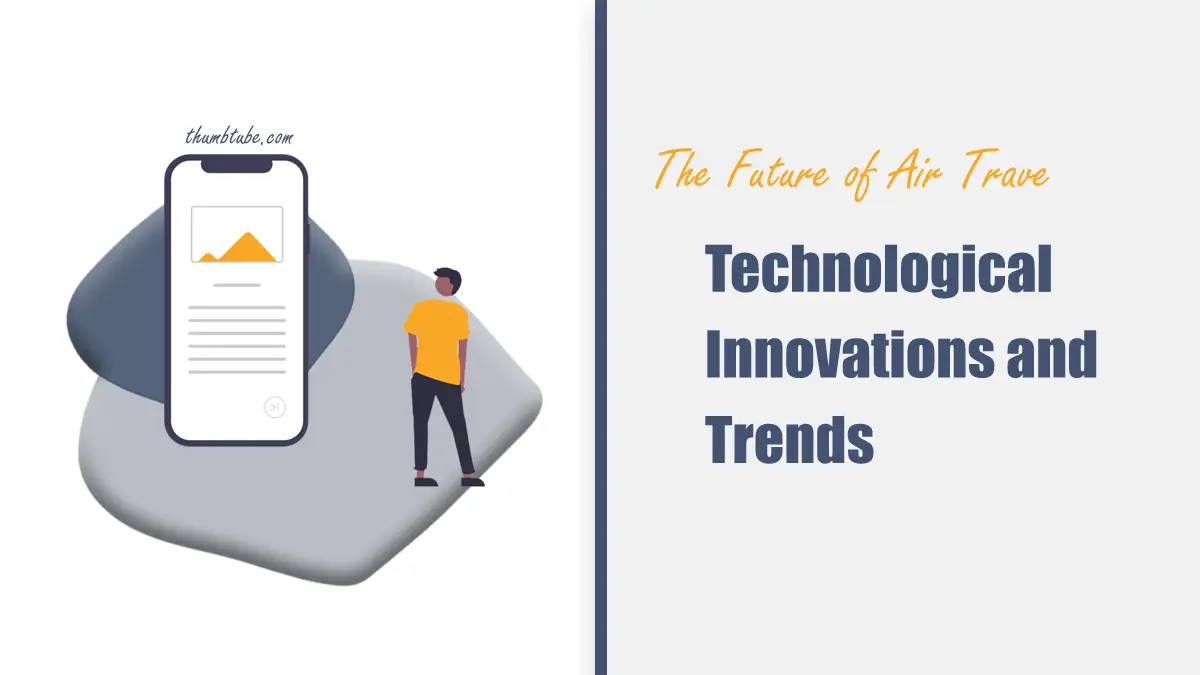When you think of industries that push the boundaries in terms of technology, the airline industry may not be the one that springs to mind straight away. For passengers, flights may have felt the same as they did a few years ago – but that doesn’t mean there’s not a lot going on behind the scenes.
From cleaner and greener aviation solutions to the return of supersonic flights and the constant upgrades to in-flight entertainment, the future of air travel is looking pretty promising.
Next-Gen Entertainment in the Sky
In-flight entertainment is getting a major upgrade. It’s not just about shared overhead screens anymore, the amount of entertainment options that passengers are going to be able to choose from soon is going to be limitless. Before, passengers would only be able to view a select few movie titles or a couple of in-flight games, but with better WiFi onboard, they can play or watch pretty much anything they want. No more having to download a movie before the flight takes off, or having to wait to play video poker online for real money until landing, people can do it all from their cabin if they want. Live-streamed poker dealers will load in real-time, and you won’t have to worry about any annoying delays in placing your bets, it will all be just the same as if you were playing from your gaming PC at home.
The future promises a more personalized and immersive experience for each passenger. Virtual reality (VR) and augmented reality (AR) are also going to be stepping into the spotlight, offering passengers a chance to escape into a virtual world or enhance their real-world surroundings during the flight – which could be a complete game-changer for people who are scared of flying and need some serious distraction to get them through the hours spent in the sky.
Think interactive 3D maps and personalized content recommendations based on what you love. And guess what? Airlines are thinking of bigger and better screens, so you can enjoy movies, shows, and games with crystal-clear clarity, rather than those tiny screens we’ve all become used to.

A Greener Approach to Flying
As we become more environmentally conscious, the aviation industry is making moves towards sustainability, which is important considering the amount of fuel that’s used on the average transatlantic flight. Sustainable aviation fuels (SAFs) are becoming a thing, offering a cleaner option compared to regular jet fuels. These fuels, made from renewable sources like biofuels and synthetic fuels, could significantly cut down on carbon emissions and make air travel more eco-friendly.
We’re even starting to see more airlines offer vegan options for guests, another small way that companies are doing their bit for the environment and trying to reduce their carbon footprint.
Faster Flights on the Horizon
Remember the sonic boom that came with the Concorde? Well, brace yourself because it might be making a comeback.
Companies are actively working on new supersonic aircraft that could drastically cut down long-haul flight times. These next-gen supersonic planes are designed to tackle old issues like noise pollution and high costs, giving us a chance to experience ultra-fast air travel once again.
The Sky’s the Limit with Connectivity
The Internet of Things (IoT) is becoming a part of our flying experience, making it more connected and efficient. Smart aircraft components with sensors are like the health trackers for planes, providing real-time data on how everything’s doing. This not only helps with predicting maintenance needs but also amps up safety and efficiency.
And for us passengers, the IoT is encouraging more airlines to have smart cabins. Imagine a cabin that adjusts to your preferences automatically – the right lighting, perfect temperature, and a seat that’s just how you like it. With IoT, the whole flight becomes more personal, making sure your journey is as comfortable as can be.

Simplifying Travel With Biometrics
Say goodbye to boarding passes and passports – biometrics could be the next revolution in the travel industry.
Facial recognition technology could make check-in, security checks, and boarding a breeze and can eliminate the need to hunt around for your passport before every single flight too.
It’s not just about convenience; biometrics amps up security by making sure you are who you say you are. Less time in queues and more time enjoying your journey – it’s a much better experience for everyone!
Airplanes Are The Next Form of Taxis
The idea of zipping around cities in flying taxis isn’t just in the movies; it might become a reality soon. Electric vertical takeoff and landing (eVTOL) aircraft are being developed, promising to ease urban congestion and give us a faster way to hop around short distances.
Imagine combining the convenience of helicopters with the efficiency of electric propulsion. As these eVTOL vehicles go through tests and get the green light from regulators, we might see a whole new way of getting around in our cities.
